
Digital Equity Initiative
As technology advances and COVID-19 continues to force activities to be virtual, there is an increasing divide between those with the skills and tools needed to thrive in this new environment. The people who are most affected by this divide are in low-income and rural areas, who lack access to high-speed internet connections. These individuals will struggle to participate in opportunities for their economic and educational growth.
The Digital Equity Initiative at the New Jersey Policy Lab aims to ensure all citizens of New Jersey have the capacity to connect online by using data science to identify and resolve obstacles and dynamics of digital equity. The outcomes from this project will help state agencies improve the application and accessibility of their benefits, create training programs, and help policymakers make our society more digitally inclusive.

Increased Access to Nature and Outdoor Recreation for People with Disabilities
The U.S. Centers for Disease Control and Prevention (CDC) estimates that 21% of New Jersey adults have some type of disability. Adults with disabilities are more likely to have depression, diabetes, or other health problems. Research has underscored the physical and mental health benefits from access to nature and outdoor recreation. Being outside in green spaces supports an active and healthy lifestyle, which has shown to increase life expectancy, improve sleep quality, reduce diabetes and the risk of cancer. However, research also indicates an inequitable access to nature and outdoor spaces faced by people with disabilities.
This project will conduct research regarding other states’ policies regarding advance access for people with disabilities to nature and outdoor recreation and intend to hold focus groups with people with disabilities to gain input on the specific needs, challenges, and priorities in order to expand access. A public report will be prepared and published to outline state policy challenges and opportunities associated with improving access for people with disabilities to nature and outdoor recreation.
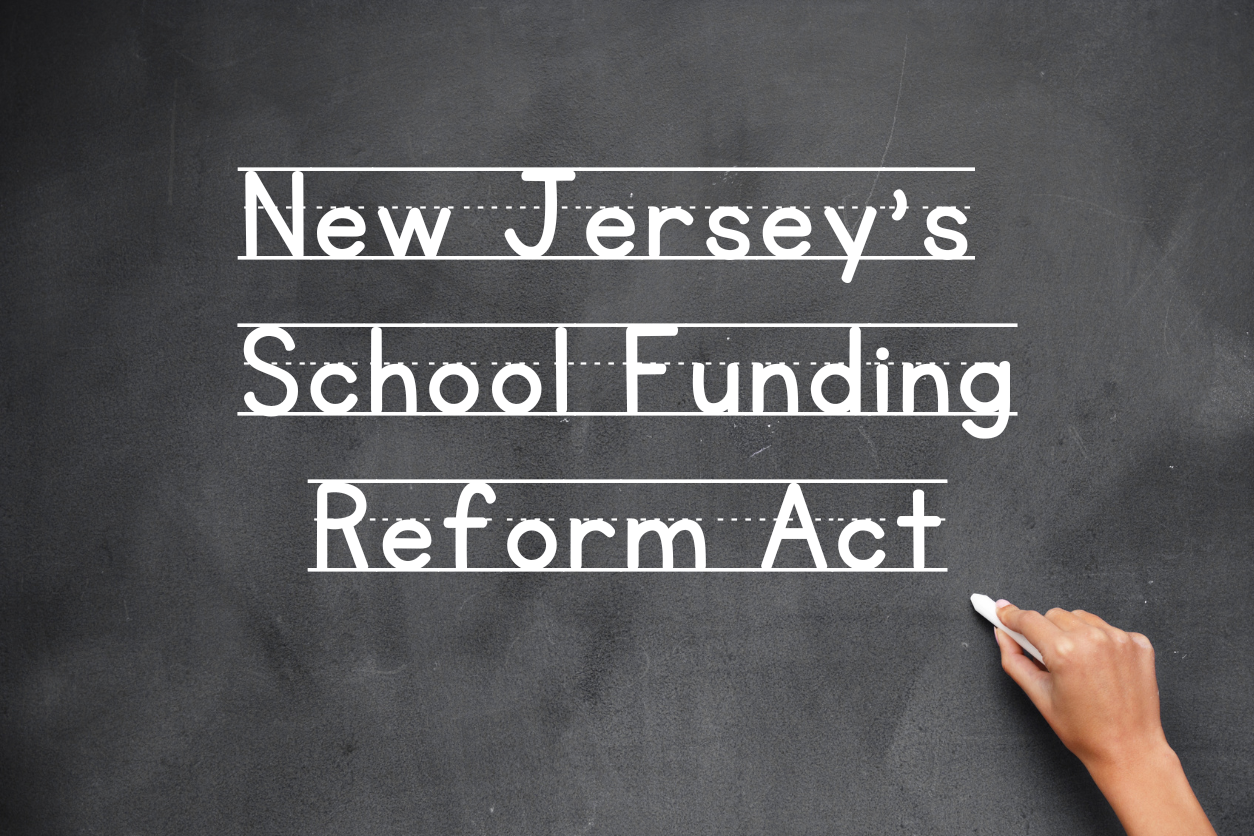
The 2018 Revision of New Jersey’s School Aid Formula and its Implications for District Finances and Student Achievement
In 2008, New Jersey enacted the School Reform Funding Act (SRFA) which was designed to create a new school funding formula to end a long cycle of failed legislative attempts to reduce school spending inequalities across the state’s school districts. Unfortunately, the SRFA created its own revenue inequalities, primarily with some New Jersey school districts receiving more state aid than what the government was required to provide, while others did not receive the required amount of state funding based on the new formula.
In 2018, Bill S-2 was signed to revise the SRFA and address the funding inequalities. This new project will provide systematic analysis of how these school formula changes following the 2017-2018 school year impacted the distribution of state aid across New Jersey school districts. The research will be obtained by using district-level data on financial and student achievement variables from the New Jersey Department of Education before and after the implementation of the S-2 bill.

Open Space, Farmland, & Historic Preservation
Since the Garden State Preservation Act of 1998, New Jersey has set a goal to preserve one million acres of open space, farmland, and historic structures. This project will analyze the amount of open space (parks, natural areas, blue acres, etc.), farmland, and historic sites preserved, compare this data with statewide goals and targets, and provide findings and policy recommendations to ensure these programs are an efficient, effective, and equitable allocation of public dollars for preservation.

NJ Childcare Infrastructure
New Jersey has a remarkably unique childcare landscape with unionized at-home childcare workers and a new childcare tax credit. However, nearly half of residents live in a childcare desert, and the number of home-based childcare providers in the state has dropped. Economists and other social scientists have long argued that childcare is a pivotal aspect of a successful economy. Accessible and affordable care allows parents to fully participate in paid work. The COVID-19 pandemic made this dynamic even clearer. Led by the Center for Women and Work, this project provides new evidence on New Jersey’s childcare landscape, gaps in childcare infrastructure, and the ways in which the state can better support childcare workers. The analysis is intended to help guide discussions on how New Jersey’s childcare landscape can be improved and how its expansion stands to benefit working parents and the state’s economy as a whole.

Garden State Informatics
Information is critical for informing policy and addressing a wide range of social, societal, and socioeconomic problems. The State of New Jersey has data-sharing initiatives, and many agencies have shared their data; however, the data is often unconsolidated which makes it difficult for data-driven decisionmakers to work effectively with it. Working in collaboration with the Rutgers Urban and Civic Informatics Lab (RUCI), this project’s primary purpose is to address the critical need for researchers, lawmakers, and all data-driven decision-makers to have a clear, simplified, and integrated view of the information ecosystem in NJ. By identifying and summarizing data sources, this project will prepare a plan to provide an integrated and interactive mechanism to facilitate effective and efficient data access to policy, research, business, and governance in the State of New Jersey.

Financial Aid for Higher Education in NJ
Two new higher education grant programs, the Community College Opportunity Grant (CCOG) and the Garden State Guarantee (GSG), are making college more accessible and affordable to low-income New Jersey residents, limiting out-of-pocket costs and, thus, future debt.
This study, in a partnership with the Newark City of Learning Collaborative, will inform the rollout of financial aid programs in the state by exploring Newark families’ perceptions of the CCOG and GSG, barriers to access, and strategies to increase awareness and expand the impact of these grants.
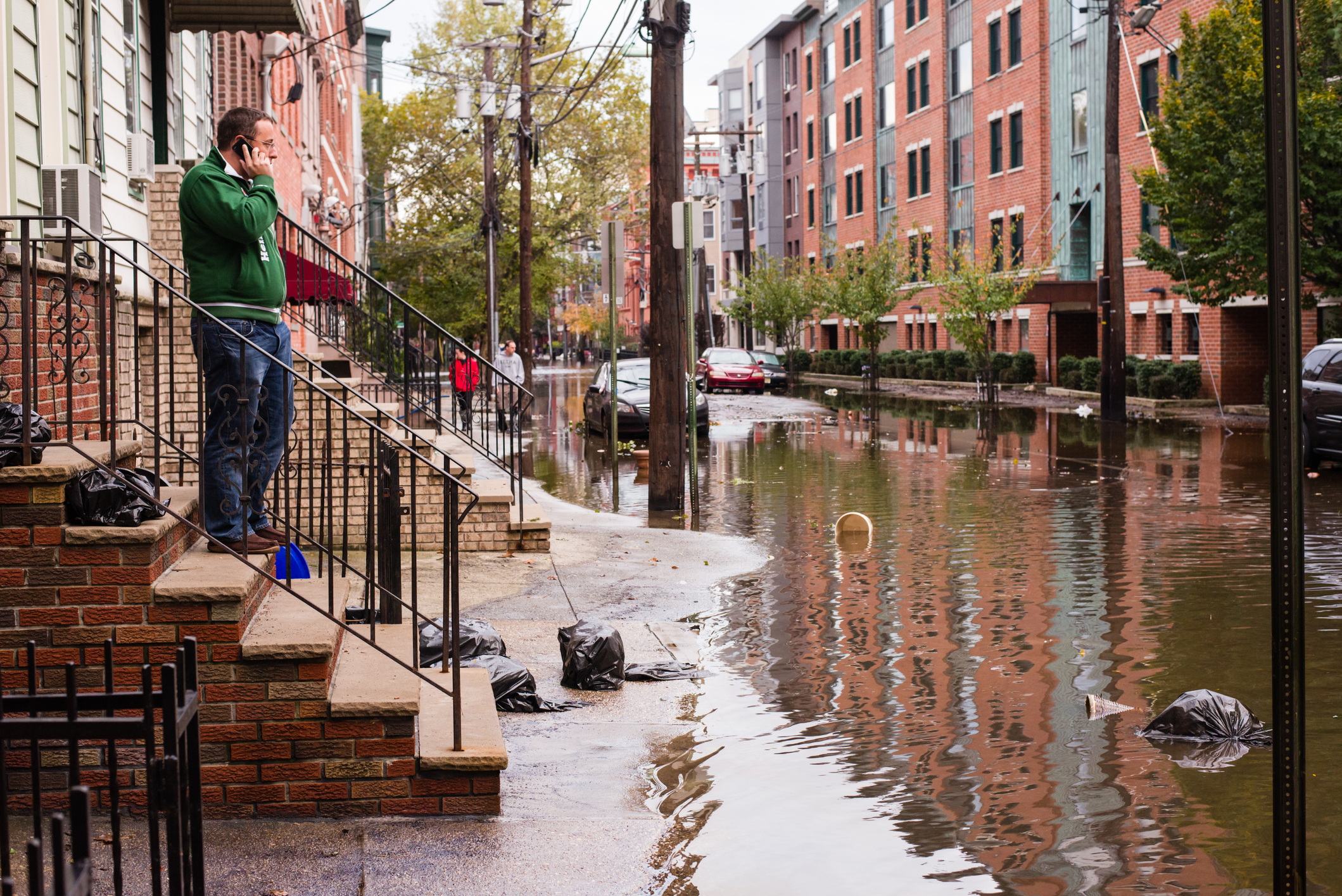
Equitable Property Acquisitions to Enhance Climate Resilience
As climate impacts continue to escalate and affect New Jersey, an update of the floodplain buyout program, Blue Acres, will be an essential tool for the state to reduce New Jerseyans’ vulnerability to flooding. Led by the Climate Change Resource Center, this project will examine best practices of other programs across the country, inventorying what innovative practices of buyout programs outside of New Jersey have helped to ensure proactivity, maximized community benefits, equity, and environmental justice, and what engagement efforts have captured community members’ vision. Updating this important program should be done thoughtfully and rigorously, with the intention of informing the redesign of the state’s flood property acquisition program while keeping equity and environmental justice top-of-mind.
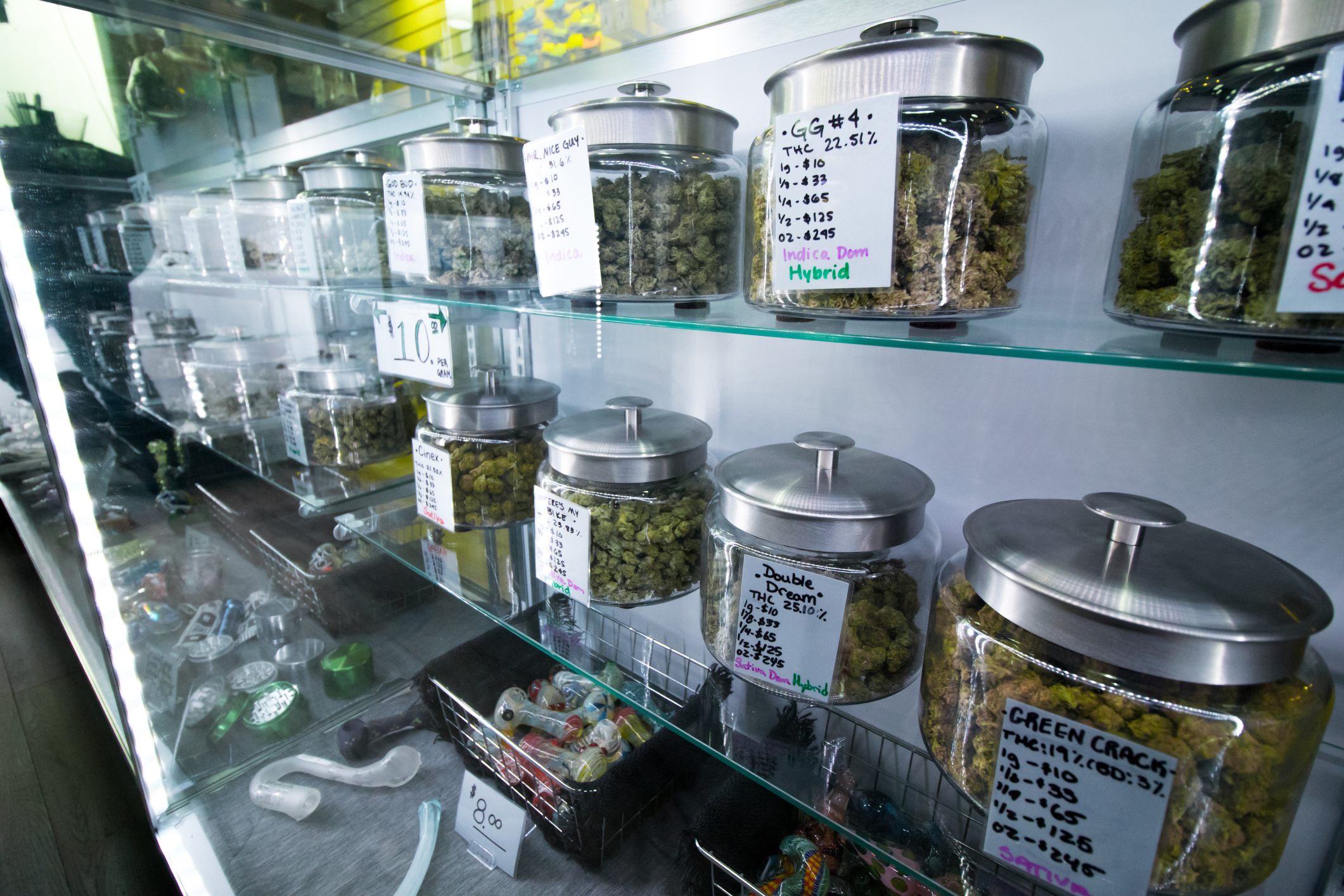
Legalizing Cannabis Businesses
In 2020, New Jersey became the 13th state to legalize cannabis. However, more than 60% of all New Jersey municipalities voted to ban local cannabis-related businesses in their towns, which will likely have important economic and social impacts on NJ local governments. Therefore, it is vital for New Jersey state and local policymakers to understand why some municipalities opted-in and others opted-out of allowing cannabis-related businesses to locate in their jurisdictions.
This research project will investigate different sets of political, socioeconomic, geographic, and fiscal characteristics that affect decisions to allow or ban cannabis-related businesses across New Jersey municipalities, and short-term economic impacts of these decisions. The findings of this project will provide local and state policymakers with important economic and law enforcement insights that may have equity implications across the state.

Equity in the State Budget
In New Jersey’s efforts to track the operations and performance of all State government departments, there is no specific reference to equity. Government actions have the potential to make a substantial and lasting impact on equity for all residents. One of the most powerful levers for advancing equity is the government’s budget.
This project will provide the State with information on how other US states are integrating equity into their assessment of agency and department performance and how they are using their budgets to advance equity for people of color and other marginalized groups. This information can be used to help the State of New Jersey adapt its agency performance assessment and its budget to more directly include a focus on the equity impact of its services and investments.

Evaluating Evaluations
Implementation and reporting of evidence-based policies are integral parts of being a transparent and effective state government. By conducting research on policy effectiveness, state governments can determine the real impact that policies have on target populations.
This project focuses on how New Jersey evaluates programs related to recidivism, addiction recovery, and workforce development. In looking at New Jersey’s current evaluation systems, this project aims to assess the future creation of an evaluation site for state government. This would include having leadership and governance structures to use evaluations to improve results, having evaluation policies and learning agendas in place to support the building and use of evidence, and using dedicated resources to evaluate state results.

Food Waste & Security
As climate change increases its impact on our environment, it is imperative to discover how NJ can respond in its food waste and food security policies. The NJ Policy Lab will partner with the Organics Workgroup of the NJ Climate Change Alliance to conduct research to inform the development of statewide public policy aimed at reducing food waste, contributing to food security, and driving organic wastes away from landfills.
This project will study how other states’ policies address the economic impact of regulatory reform efforts, examine the design of those efforts, and assess the effective stakeholder engagement efforts in other states that contributed to the development of policies and regulatory reform. The outcome of this project will inform emerging public policy related to climate change and its intersection with other societal priorities including food insecurity.

NJ Housing Crisis in the COVID-19 Era
The COVID-19 pandemic is exposing the vast housing affordability crisis in New Jersey as both homeowners and renters have required governmental assistance to secure stable housing. Housing policies have had to adapt to the increased level of need, however, the scale of the problem is only growing as the ongoing economic impact of the pandemic is felt in communities throughout the state and the nation.
This project will examine strategic development of five housing authorities in New Jersey: Newark, Jersey City, Elizabeth, Trenton, and Camden. The project will establish a foundational framework for developing instruments to assess organizational learning processes through exploring the interplay between local, state, and federal housing policies on issues of affordability and challenges of housing disparities during the COVID-era.
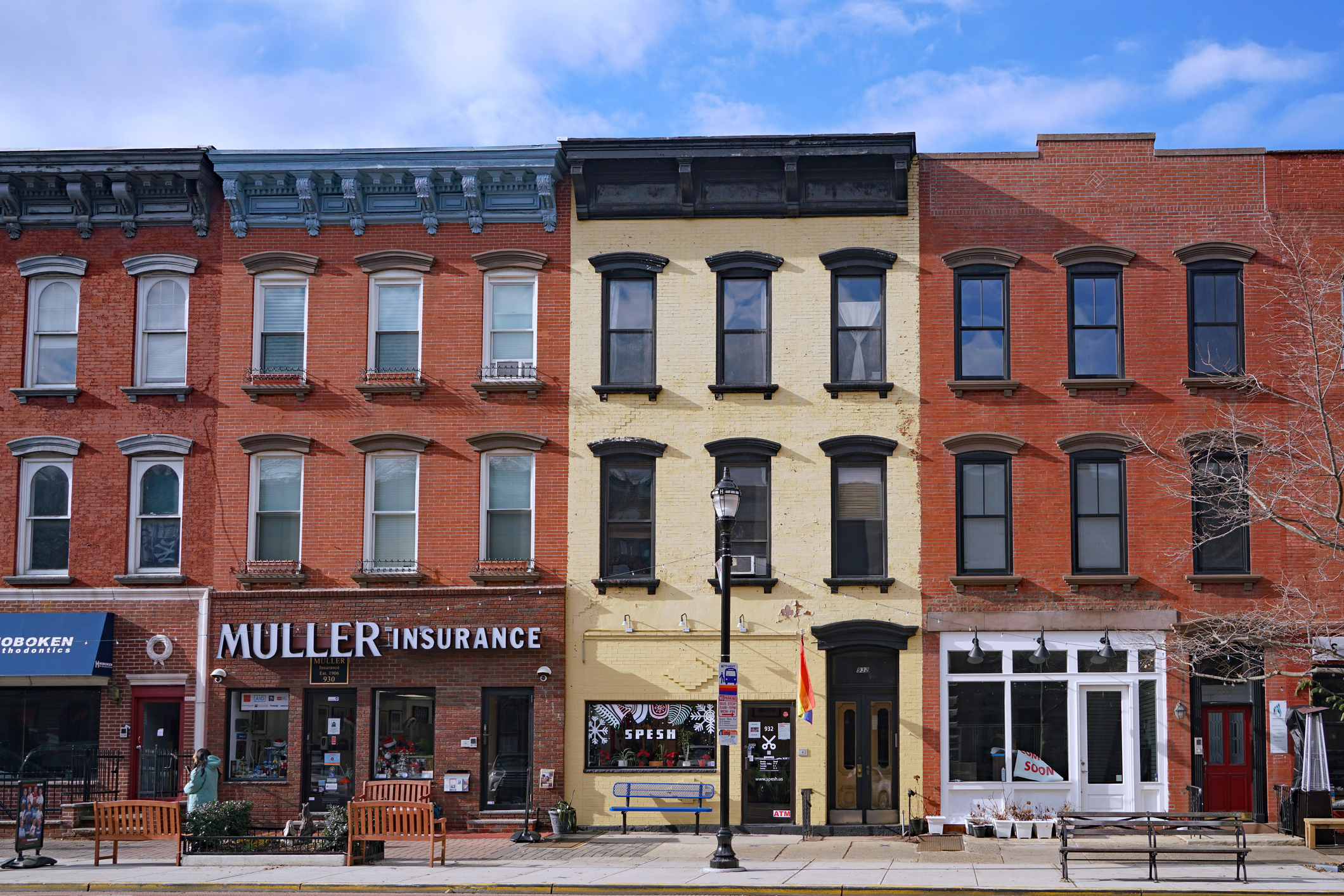
Encouraging Activation of Vacant Commercial Properties
The economic recession caused by the COVID-19 pandemic has resulted in an increase in vacant and under-occupied commercial property across New Jersey. This increase is expected to put downward pressure on economic growth and government revenues in both the short and long run.
By developing policy reports on solutions to vacant commercial property, this project will explore existing and prospective tax and subsidy policies that both New Jersey state and local governments could use to encourage property owners to reuse and/or activate currently vacant commercial properties in the state.

Equity in Agency Performance Assessment
Incorporating equity measures into government agency performance assessments is integral to ensuring equity in decision making, programming, and service delivery. This project will provide recommendations for New Jersey agencies to use in their assessment of performance and service delivery.
Additionally, this project will build on information presented in a report previously published by the New Jersey State Policy Lab that provided illustrations of how state and local governments are using their budgets to advance equity, especially for people of color and other marginalized groups.

Quality Ratings in Long-Term Care
Despite the State of New Jersey’s efforts to enhance the well-being of its diverse elderly population, including the establishment of a state division on aging, the challenge of poor quality long-term care facilities still persists. This project is comparing the quality of nursing homes in New Jersey to those in other states and assessing how they respond to government quality standards focusing on the role of the overall five-star quality rating. The second objective is to understand how nursing home quality ratings influence citizens’ perceptions of the homes and how this information ultimately shapes their choices.
This research strives to foster a positive cycle of continuous improvement in long-term care by offering policy recommendations to improve the quality of such care in the state.

Reducing Opioid Overdose Risk in New Jersey
Emergency department (ED) visits are common among individuals with opioid use disorder (OUD), and therefore serve as a critical setting in which to engage them in services and link them to continuing care.
This mixed-methods pilot study is integrating analyses of New Jersey Medicaid claims with document reviews, key informant interviews, and policies and programs designed to engage with patients with OUD and/or a history of overdoses.
The study is also examining efforts to increase ED buprenorphine prescribing in New Jersey, which has been shown in clinical trials to increase post-discharge treatment engagement and reduce risk of adverse OUD-related outcomes.

Supporting Aging in Place in Low-Income Senior Housing
The New Jersey Assisted Living Program (ALP) is an innovative housing-plus-services model designed to prevent or delay the institutionalization of low-income senior housing tenants who need assistance with basic activities of daily living. ALPs provide in-home services (covered by NJ Medicaid) that meet the daily health and social needs of residents of publicly subsidized, congregate housing, who would otherwise be clinically and financially eligible for state-financed, high-cost care in skilled nursing facilities.
This project is investigating systematic differences between ALP and non-ALP participants at the individual, organizational, and community levels by using administrative and claims data from the Center for Medicare and Medicaid Services (CMS) on dually eligible New Jerseyans. The project is also seeking to understand facilitators and barriers for ALP implementation by conducting interviews with housing and services providers who are leading ALP implementation within communities across NJ.

Developing a Mental Health Services System for Justice Involved People
This project seeks to use Appreciative Inquiry (Ai) and the Ai summit to develop a transformative system of mental health services for justice-involved individuals in New Jersey.
An Appreciative Inquiry Summit is a collaborative convening of diverse stakeholders to identify strengths within a policy domain in order to shape new and shared visions for innovative, effective, and transformative public policies. The project plans to create a portfolio of recommended public policies, which will inform policymaking processes leading to the creation of new mental health programs and services support for justice-involved individuals on their journey towards recovery and successful reintegration into society.

Low-income Community Solar Program and Energy Justice in NJ: An AI-based Crowdsourcing Study
Low-income households in under-resourced communities face a disproportionately higher energy burden, (i.e., the percentage of gross household income allocated to energy costs). The U.S. Department of Energy’s Energy Justice Mapping Tool demonstrates that many under-resourced neighborhoods in the city of Newark suffer from this source inequity. For these households, there is a greater opportunity for energy and cost savings, as they often face environmental and socioeconomic barriers to accessing energy technologies that help make energy more affordable.
This project is examining the effectiveness of low-income community solar programs and enhancing the involvement of under-resourced community stakeholders to achieve energy justice in New Jersey. As climate change intensifies the severity of natural disasters, it is imperative to ensure community and environmental equity when designing and implementing energy and climate policies. This project is using an AI-based crowdsourcing tool to engage residents from Newark’s under-resourced communities in an online open discussion to better assess their understanding of energy justice programs such as the low-income community solar program. Researchers will identify potential challenges and provide prospective measures that can help to foster energy justice in the state.

Eliminate Pedestrian Fatalities in New Jersey
Pedestrian deaths were at a 41-year high in 2022, with more than 7,500 killed in the U.S. According to the National Highway Traffic Safety Administration (NHTSA), New Jersey consistently ranks in the top half of states with the highest pedestrian fatality rate per capita. This project is conducting a comprehensive analysis of the causal factors associated with pedestrian fatalities in New Jersey with the aim of informing the proposed New Jersey Target Zero Commission (AB4296). The recently passed federal transportation bills (BIL and IIJA) will be providing funding to the states to help achieve these goals, but it is critical that the money is spent on actions that lead to consequential reductions in fatalities.
This project is using both New Jersey’s Safety Voyager crash data and NHTSA’s Fatality Analysis Reporting System (FARS) to evaluate pedestrian fatalities over at least the last five years and is addressing multiple angles of transportation safety: urban street design, motor-vehicle design, and equity. Researchers are critically investigating factors that lead to fatal crashes to come up with multi-faceted policy recommendations that will support Vision Zero initiatives.

Public Transportation in Camden County
Though progress has been made, public transportation access continues to be a policy issue of concern for residents across the Southern New Jersey region. Existing research from The Senator Walter Rand Institute at Rutgers-Camden has documented Camden County residents’ public transportation challenges and barriers.
This project is taking these findings one step further to identify community priorities and policy recommendations to address gaps identified in the data for Camden County. This study will support targeted, community-based, and informed transportation-related decision and policymaking in an area of disproportionate need.

Environmental Justice
With New Jersey’s passage of an Environmental Justice law, municipalities throughout the state seek guidance on resources and best practices that can support their efforts to advance systematic Environmental Justice provisions in local planning and decision-making.
This project will collaborate with various NJ state agencies to develop web-based and printable guidance that can be used by municipalities to prepare Environmental Justice Action Plans.

How Teacher Preparation Programs are Responding to Changes in State Assessment Policy
Teacher education in New Jersey is currently undergoing a major policy shift in how teacher performance assessments will be used to certify new starting teachers. This shift was motivated, in large part, over concerns regarding teacher shortages and the impact that the established assessment policies and practices were having in exacerbating this problem. This project will study, in real time, how teacher preparation institutions are responding to the new policy directions that will take effect in Fall 2023.

The Impact of Technology Use for Public Organizations
With information and communication technologies growing steadily across all levels of government in New Jersey and throughout the United States, it becomes imperative for public organizations to understand how technology use affects work outcomes for public employees and access to government services for citizens. In particular, the coronavirus pandemic forced public organizations around the world to quickly integrate technology into workplace practices to continue to provide public service and guarantee safety.
This project will investigate how the integration of technology in public organizations affects public managers’ work outcomes and their interaction with citizens and local vulnerable communities. Results from this project will inform organizational policies surrounding technology use and provide inputs for improving the interaction between the state government and vulnerable communities through the use of and access to online technologies.

An Intersectional Examination of the Effects of Inflation in New Jersey
In the aftermath of the COVID-19 pandemic, inflation has plagued the nation and the state of New Jersey, with national inflation rates higher than they have been in decades. This situation raises concerns about the financial well-being of Americans and New Jerseyans, as well as how inflation may affect different demographic groups disproportionately.
In order to get a better understanding of how price increases have differentially affected New Jerseyans, and thereby providing an updated picture of economic gender inequality in the state, this project will examine both how the spending habits of various groups of consumers affect their rate of inflation and how financially prepared they are to face price increases. This project will be accomplished as a collaboration between the New Jersey State Policy Lab and the Center for Women and Work at Rutgers University.

New Jersey Credential Attainment Goal, 65% by 2025
In 2017, the State of New Jersey launched the “65 by ’25: Many Paths to One Future Campaign,” pledging a goal that 65% of working-age residents would have some type of high quality post-secondary credential by 2025. As the state embarks on the final stretch of this attainment goal, the New Jersey State Policy Lab will be evaluating the progress toward this objective on behalf of the Office of the Secretary of Higher Education (OSHE).
With this research, the Policy Lab will evaluate the state’s current progress, taking societal contexts into consideration, review the most effective practices at increasing attainment, and provide recommendations for future considerations to build upon OSHE’s current work.

Senior Health Connect
The goal of this report is to bridge the digital divide among older adults—a persistent gap in access to broadband services, internet-ready devices, and proficiency in their use—while addressing health inequities exacerbated by the COVID-19 pandemic in New Jersey.
This research will be conducted through several phases, which include training cohorts of seniors on device and internet use and engaging participants in a guided health literacy program. The Senior Health Connect (SHC) training curriculum and implementation strategy was developed with the input from community residents and other community-based stakeholders, senior serving organizations, RU-N’s Office of Information Technology (OIT), faculty from the School of Public Affairs and Administration, and students from various academic disciplines.
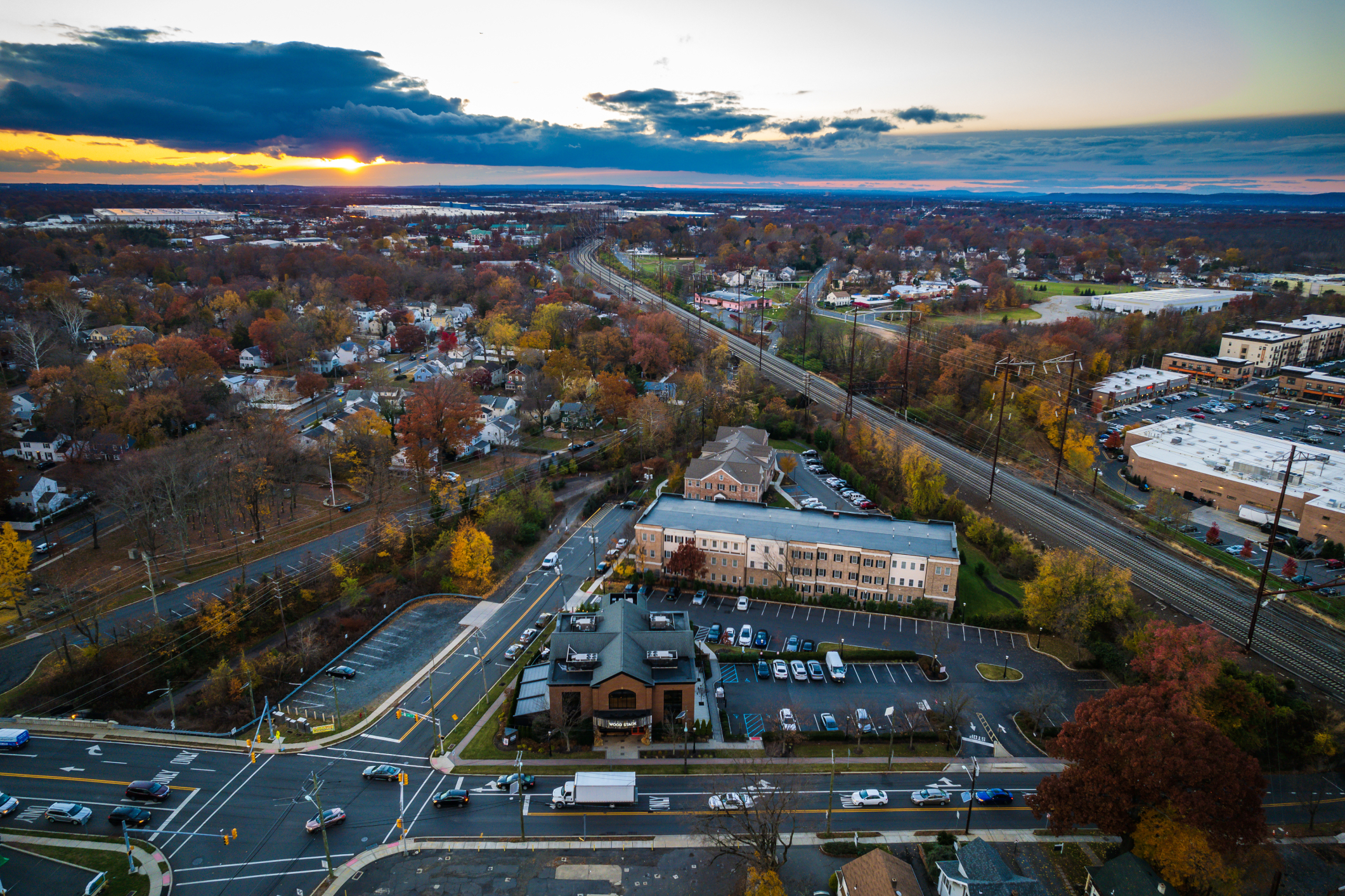
Transforming NJ Transportation Infrastructure
Healthy, safe, resilient, and carbon-neutral transportation has become a policy priority at both the national and state levels. By embracing this policy alignment along with a massive investment in transportation, land use, and mobility infrastructure, decision-makers can support mobility options to promote healthier communities in New Jersey.
Working with Rutgers’ Voorhees Transportation Center, this project will demonstrate how a comprehensive, multi-goal transportation planning and policy framework can be used to achieve carbon-neutral transportation that also provides healthy, just, efficient, and resilient mobility for all New Jersey residents.

Transportation Changes during the COVID-19 Pandemic
The COVID-19 pandemic has had major impacts on how people work, travel, and engage in commerce. The NJ Policy Lab will partner with the Alan M. Vorhees Transportation Center at the Edward J. Bloustein School of Planning & Public Policy at Rutgers-New Brunswick in conducting and analyzing two rounds of surveys to better inform state and local policymakers on how this change in consumer behavior will affect real estate, public transit, and commerce.
In collecting and analyzing data that documents reported changes in travel patterns, on-line shopping, and perceptions of street closures and outdoor dining, the main objective is to track these changes over time with the aim of determining whether these changes persist. Understanding these potential changes will help policy makers and planners at the state and local level find solutions to deal with any major changes, if they continue.

Unemployment Insurance and Mental Health
The COVID-19 Pandemic has caused record rates of unemployment in NJ and nation-wide. Joblessness is known to diminish mental health status, and, in turn, diminished mental health has been shown to delay labor force re-entry. Improving unemployment insurance recipient mental health is in the interest of both the unemployed individual and the state, as even a small improvement in time to re-employment can lead to substantial savings to the unemployment insurance system.
The New Jersey Policy Lab will partner with the Center for State Health Policy at Rutgers-New Brunswick to use publicly available data from the PULSE Household Survey to address important questions about the feasibility of offering mental health supports through the unemployment insurance system. The purpose of this project is to examine potential gains for unemployment insurance recipients and the state from adding mental health supports to the array of services offered through New Jersey’s unemployment insurance system.
